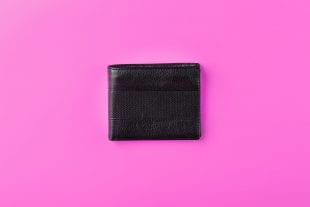HOUSTON – (Dec. 8, 2020) – The wage gap between men and women is no secret, but another form of gender discrimination directly and disproportionately affects women worldwide: the "pink tax" imposed by import tariffs that target female products.
But new Rice University research concludes the “pink tax” is generally lower in countries where more women are elected to political office.
"Women’s Descriptive Representation and Gendered Import Tax Discrimination" will appear in an upcoming edition of the American Political Science Review. The article not only highlights a previously unacknowledged trade policy that penalizes women — gender-biased import taxes — but also provides evidence that political representation can have a substantial, direct impact on discriminatory policies.
Import tariffs, which can differ for otherwise identical gender-specific products, often impose direct penalties on women consumers, said researchers Diana O'Brien of Rice, Timm Betz of the Technical University of Munich and David Fortunato of the University of California, San Diego. When they compared nearly 200,000 tariff rates on identical men’s and women’s apparel products in 167 countries between 1995 and 2015, they found that the difference varied from country to country but it negatively impacted women on average.
Importers ended up paying more for merchandise like jeans, boots, robes and T-shirts aimed at women than identical items sold to men. Women’s and men’s products were taxed at different levels nearly 40% of the time, and women’s items were, on average, taxed 0.7% more than identical products aimed at men. The higher costs were passed on to wholesalers, then retailers and finally female consumers.
But the researchers found political representation is a key factor in lowering import tax penalties on women’s goods.
"Just like in other areas of politics, inequalities in representation are reflected in inequalities in government policy," O'Brien said.
Across all democracies, women hold only about 25% of the seats in national legislatures, O'Brien said. In countries with more women in their legislatures, and in countries where women have been able to increase their share of legislative seats, the tax penalty on female consumers has been reduced.
The paper is available online at https://bit.ly/33f9Ntx.
-30-
This news release can be found online at news.rice.edu.
Follow Rice News and Media Relations on Twitter @RiceUNews.
Photo link: https://cpb-us-e1.wpmucdn.com/news-network.rice.edu/dist/c/2/files/2020/12/147183410_l.jpg
Photo credit: 123rf.com
Located on a 300-acre forested campus in Houston, Rice University is consistently ranked among the nation’s top 20 universities by U.S. News & World Report. Rice has highly respected schools of Architecture, Business, Continuing Studies, Engineering, Humanities, Music, Natural Sciences and Social Sciences and is home to the Baker Institute for Public Policy. With 3,978 undergraduates and 3,192 graduate students, Rice’s undergraduate student-to-faculty ratio is just under 6-to-1. Its residential college system builds close-knit communities and lifelong friendships, just one reason why Rice is ranked No. 1 for lots of race/class interaction and No. 1 for quality of life by the Princeton Review. Rice is also rated as a best value among private universities by Kiplinger’s Personal Finance.


